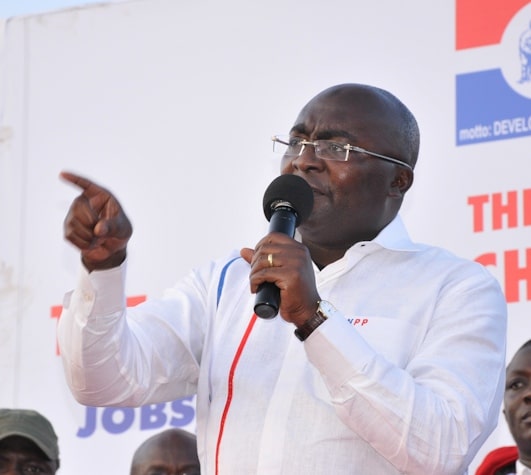adverts
The New Patriotic Party (NPP) flagbearer, Dr. Mahamudu Bawumia, has announced an ambitious plan to train one million young Ghanaians in digital skills, with 5,000 youth from the Kwadaso Constituency set to benefit directly.
Speaking at a Constituency Connect event in Kwadaso, Dr. Bawumia described the policy as a transformative initiative aimed at equipping young people with in-demand skills like coding. He emphasised that the program would enable beneficiaries to work remotely for companies across the globe, creating new employment opportunities without requiring relocation.
Dr. Bawumia highlighted the shifting global job market and the need to prepare Ghana’s youth for a digital-first economy.
adverts
“The youth need skills. We’ve introduced technical and vocational training, but they also need digital skills, as the world has shifted to digital,” he said.
He pointed out that the initiative would not only benefit graduates but also empower school dropouts to acquire skills that are highly sought after in the global marketplace.
“From right here in Kwadaso, one can work for companies in the US, Canada, and Singapore. Even school dropouts can be trained. My goal is to have at least one million people trained in digital skills, starting with five thousand youth from Kwadaso Constituency,” he added.
Dr. Bawumia’s initiative seeks to position Ghana as a competitive player in the global digital economy by enabling youth to contribute to industries such as software development, data analysis, and remote customer service.
He stressed that the program would not only create jobs but also allow beneficiaries to remain in their local communities while earning internationally competitive wages.
“This way, they can stay here and still work internationally,” Dr. Bawumia said, emphasising the potential of digital skills to bridge the gap between local challenges and global opportunities.
The digital skills initiative forms part of Dr. Bawumia’s broader vision to modernise Ghana’s workforce and reduce unemployment through innovation and technology. His focus on Kwadaso Constituency as a starting point underscores the importance of community-level development in achieving national goals.
As Ghana increasingly embraces the digital age, this policy is expected to play a critical role in equipping the youth with the tools needed to thrive in a rapidly evolving job market.


